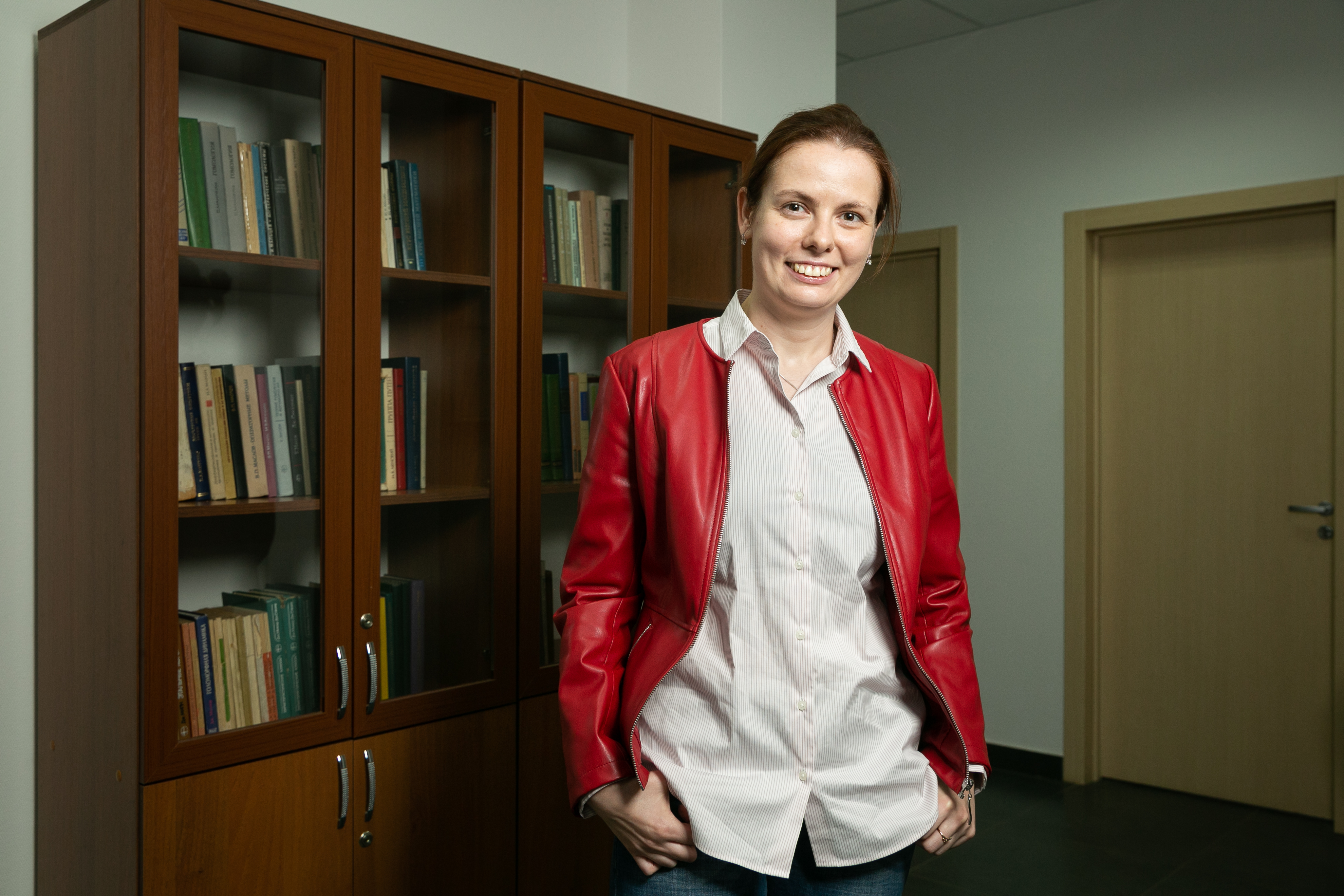Stereotypes from Childhood: Why So Few Women Work in STEM

‘There’s no point in sending a girl to a maths school—unless it’s to find a smart husband.’ This is just one stereotype that must be combatted, explained Alexandra Skripchenko, Dean of the HSE Faculty of Mathematics, in a discussion held as part of Forbes Woman Day—an international forum on gender equality in business, politics, and society. Participants of the forum discussed the changing role of women in science, a field that still suffers from gender discrimination.
The discussion, entitled ‘Women in Science and Technology: from Robots to Sputnik V. Is there Inequality?’, was moderated by Anastasia Andreeva, journalist and Chief Editor of Forbes Woman. There is a popular belief that STEM fields are immune to gender discrimination, due to the fact that they deal with objective results, namely new discoveries. Ms. Andreeva asked Alexandra Skripchenko, Dean of the Faculty of Mathematics at HSE University, whether this is the case in mathematics, arguably the purest of disciplines.
Ms. Skripchenko explained that mathematics is indeed a pure discipline, and many pursue the subject to avoid various kinds of pressures, even outside of a gender context. It involves abstract research and reasonably clear-cut results, which leaves little room for speculation. It is also a field where women can’t be excluded based on a lack of physical strength. Many women have contributed to the field throughout its history—one of the most notable examples in recent years being Maryam Mirzakhani, who was awarded the prestigious Fields Medal in 2014. For these reasons, there is no obvious opposition from men who also work in mathematics.

‘However, stereotypes do appear at an earlier stage, for girls rather than for women with doctoral degrees who are already building their careers. Obstacles often come from the family, where (outside of the narrow academic world) girls are often told ‘Why do you want to study maths? There’s no point in sending a girl to a maths school—unless it’s to find a smart husband,’ Alexandra Skripchenko explained.
Some parents believe that boys are the only ones who should join a profession that requires intense concentration, competitiveness, and detachment from everyday life. This a bigger obstacle to women’s progress in mathematics than those caused by men
She added that men working in the profession are often civil and friendly.
Another participant was Natalia Klimenko, Associate Professor of the Department of Chemical Technology of Glass and Sitalls at the Mendeleev University of Chemical Technology and developer of innovative construction materials. She explained that in terms of role models, the situation is similar in chemistry, but ‘generally, we’re closer to gender equality.’ There are many women chemists, and fields such as biology, pharmaceuticals and green chemistry are predominantly female. ‘I believe it’s important not to strive for equality in terms of numbers, but to achieve a balance and harmony,’ she explained. The most important thing is to offer equal freedom of choice.
‘You can’t let conventional patterns influence your life. If something is for you, it’s for you. Gender comes second,’ said Ann Makosinski, a Canadian inventor, founder of Makotronics Enterprises, and winner of the Google Science Fair, who took part in the discussion online.
Moderator Anastasia Andreeva noted that 30% of the people working in science globally are women—a figure that rises to 39% in Russia. She asked Oksana Kosachenko, Senior Investment Director of Sistema PJSFC and President of the Sistema Charitable Foundation, to comment on this statistic. Ms. Kosachenko explained that the high proportion of women in Russian science is for mid-level positions. Women seldom reach higher positions and are rarely introduced into the academic environment. She added that out of the 1,062 academicians of the Russian Academy of Sciences, only 152 are women. She agreed that childhood role models need to change, and that it is necessary to dispel widespread stereotypes that women should take care of housework while men go to work. She also pointed out that the proportion of women working in science is significantly lower in the south of Russia, particularly in the Caucasus.
Citing HSE University research, Ms. Andreeva noted that childhood stereotypes can cause girls to lose interest in maths as they get older and reach secondary school. Alexandra Skripchenko said that in her role as Associate Professor and Dean of the Faculty of Mathematics, she deals with children who discovered their interest in fundamental mathematics at an early age. She also highlighted that male students still outnumber female students in the Faculty of Mathematics, although not as severely as when she herself was a student.
Alexandra Skripchenko pointed out another issue: some girls look at this ‘monolithic male-dominated structure’ and begin to doubt whether STEM is for them due to a fear of not being able to fit in.
We need to fight to increase the number of women in STEM fields, although I am not a fan of imposing formal quotas to achieve it.
Ms. Skripchenko welcomes events such as summer schools for young female researchers, saying, ‘We want to do what Princeton is doing, but COVID is hampering our efforts.’ She also likes the IT ‘hen parties’ hosted by the Faculty of Computer Science for successful female programmers. This creates opportunities for direct contact and joint problem solving, including problems balancing science and family life.
Other participants of the discussion included Inna Dolzhikova, Laboratory Head of the Gamaleya National Center of Epidemiology and Microbiology—one of the developers of the Sputnik V vaccine—and Ekaterina Skorb, Director of the Infochemistry Scientific Center and Professor at ITMO University.
See also:
Researchers Observe a Gender Gap in the Gig Economy
Researchers from the HSE University Institute of Education have studied data on the work schedule of teachers in an online English-language school and have shown that women aged 25–35 work less than men. This is connected to lower workloads in the evenings. The article ‘Women in gig economy work less in the evenings’ has been published in Scientific Reports.
‘As Sociologists, We Have a Unique Perspective on the World’
Shannon Davis, Ph.D., Associate Professor of the Department of Sociology and Anthropology of George Mason University (USA) is visiting Moscow this week for the seminar ‘From the Great Recession to Greater Gender Equality? Family Mobility and the Intersection of Race, Class, and Gender’ organized by the HSE Laboratory for Studies in Economic Sociology. It will take place on March 19.


